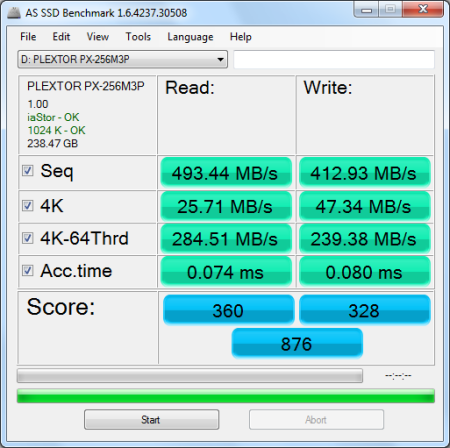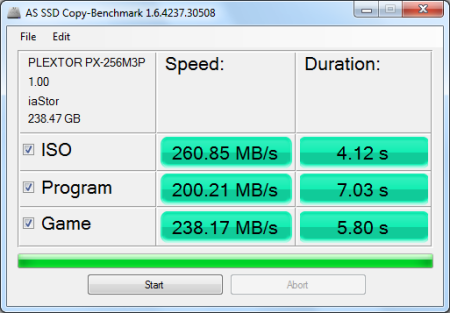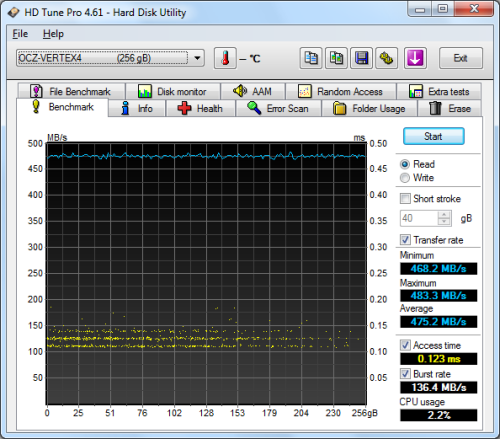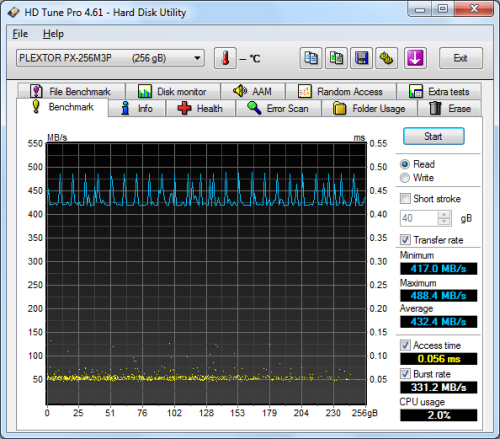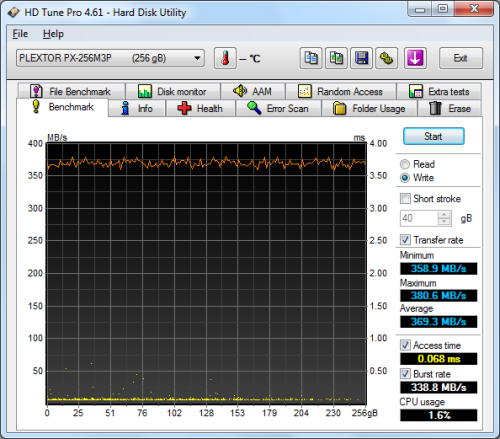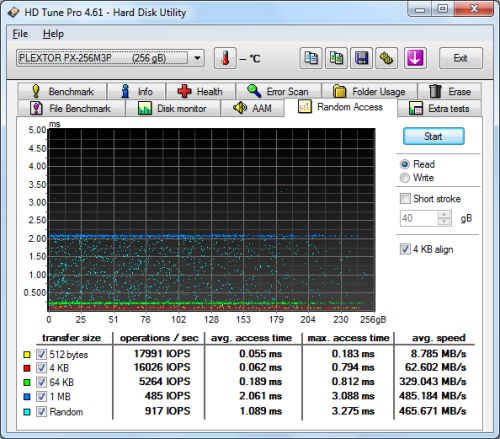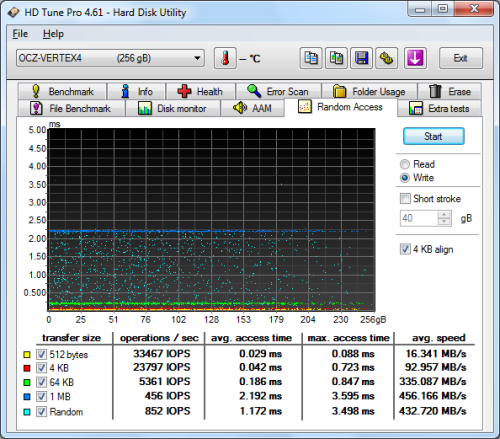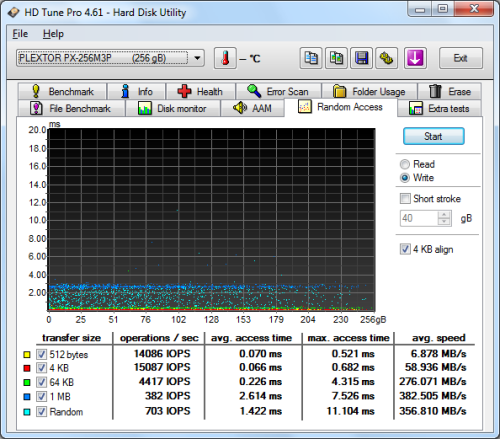AS SSD:
AS SSD is a relatively new benchmark designed specifically for solid state drives. The application contains five synthetic tests used to determine the sequential and random read and write performance of a drive.
AS SSD also includes a copy benchmark. This test copies an ISO (two large files), program (many small files) and game (small and large files), returning the speed and duration of each.
HD Tune Pro 4.61:
Next, I ran a series of tests using HD Tune Pro. This hard disk utility measures a drive's performance by testing its sequential read and write speeds as well as its access time, burst rate and CPU usage. For this review, I'm also going to use it to benchmark the Vertex 4's random read and write speeds, random access times and the number of operations per second.
The Vertex 4 performed very well when benchmarked with HD Tune. The drive had average read and write speeds of 475.2 MB/s and 443.1 MB/s, respectively, and a burst rate of 136.4 MB/s when reading.
The Vertex 4 didn't perform as well as the PX-256M3P when doing random reads. When reading 4KB blocks, the drive had an average speed of 28.455 MB/s and achieved only 7284 IOPS. The Vertex 4 performed much better when writing though, reaching 23,797 IOPS and an average speed of 92.957 MB/s.
Iometer:
Lastly, I ran a series of tests using Iometer. This tool can be configured to benchmark a number of things. In this case, I used it to measure the Vertex 4's read and write speeds and the number of operations per second. The tests were run using random bytes and a queue depth of 3.

The Vertex 4's performance was very similar to what we saw in our other tests. The drive was able to read at 520.68 MB/s and write at 489.53 MB/s. This wasn't enough to top the SandForce-based drives when reading and writing highly compressible, repeating data. However, the Vertex 4 had a clear advantage when writing incompressible, random data.
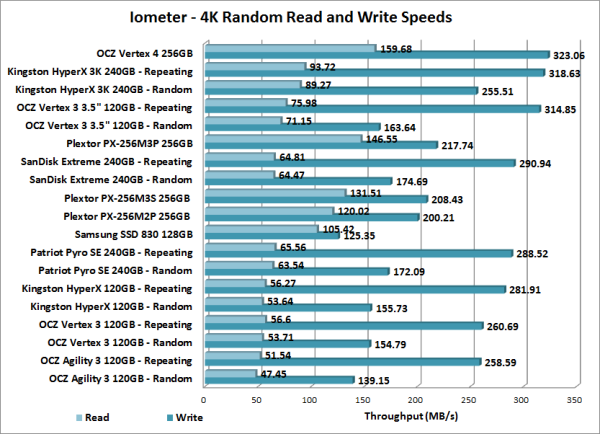
The Vertex 4 performed very well when doing random reads and writes. In our tests, the drive was able to write at 323.06 MB/s and read at a blazing 159.68 MB/s.
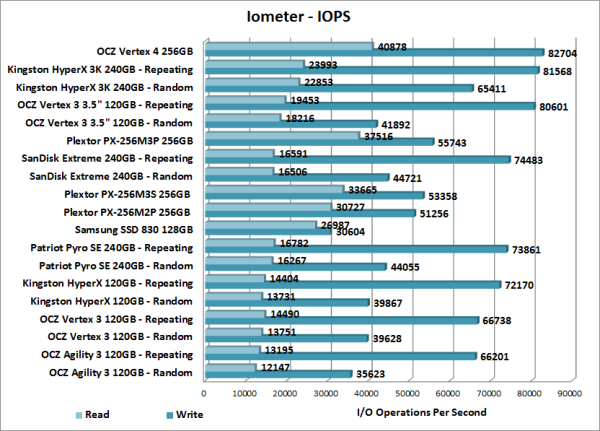
According to OCZ, the Vertex 4 can deliver a maximum of 90,000 IOPS when reading and 85,000 IOPS when writing 4K blocks. In our tests, the drive reached 40,878 random read IOPS and 82,704 random write IOPS. Increasing the queue depth had little impact on the Vertex 4's random write performance. However, with the queue depth set to 32, the drive was able to reach 86,452 random read IOPS.



